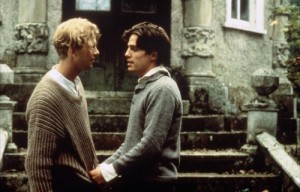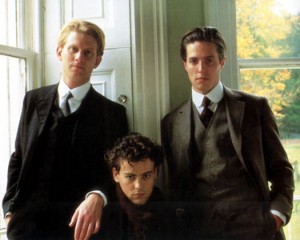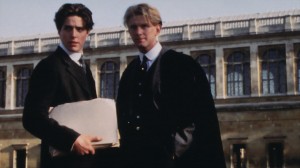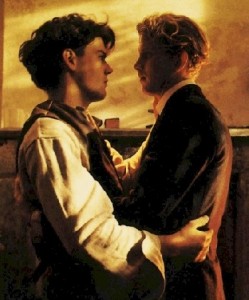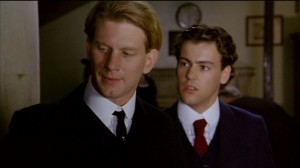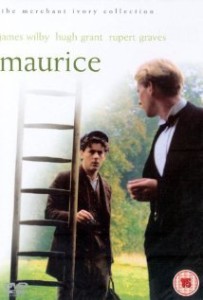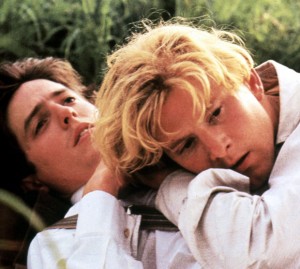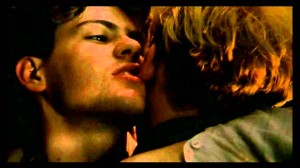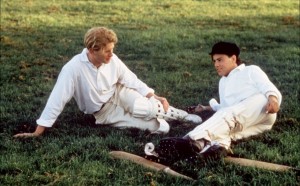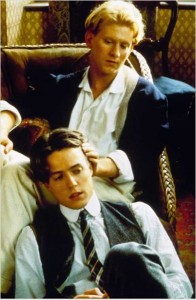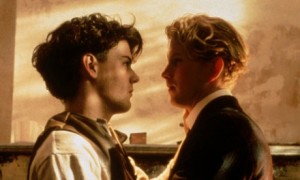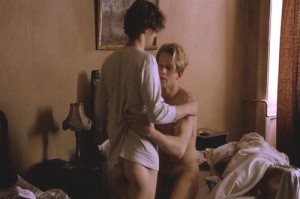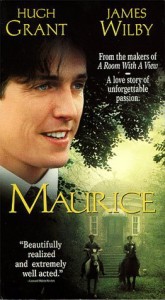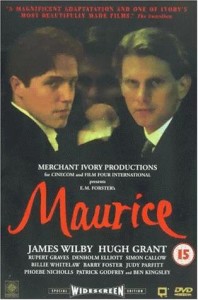Maurice ***** (1987, James Wilby, Rupert Graves, Hugh Grant, Denholm Elliott, Simon Callow, Billie Whitelaw, Barry Foster, Judy Parfitt) – Classic Movie Review 450
Bookended by A Room with a View (1985) and Howards End (1992), the 1987 middle film in director James Ivory’s and producer Ismail Merchant’s E M Forster trilogy is adapted from the gay author’s most overtly personal story.
Forster’s book was a legendary self-banned gay novel. He wrote it back in 1914 but refused to allow to be published until after his death in 1971 because it was a supposedly scandalous tale about the banned, illegal love that then dared not speak its name. Or maybe it was because his real feelings and themes aren’t hidden behind subtle smokescreens here and Foster felt it was too raw. Or maybe Foster thought the book just wasn’t an important enough work of literature.
Written from his own heartfelt anguish, it’s Forster’s wish-fulfilment story of coming out and achieving personal happiness in the repressed dark ages of his youth, the Edwardian era. He could certainly have expected a furore if it had been published in his lifetime, possibly on the level of D H Lawrence’s Lady Chatterley’s Lover.
Working with an enjoyably romantic gay novelette, not nearly in the brilliant class of the other two Forster novels, director Ivory has fashioned a distinguished, passionate film. It’s intelligent, involving and thoughtful. It’s tactful but outspoken when it needs to be. Forster might have even approved.
The expertly honed screenplay is by James Ivory and Kit Hesketh-Harvey this time, not by Ivory’s usual writer Ruth Prawer Jhabvala. Of course it comes with a message. Mrs Thatcher wouldn’t have approved.
In his finest role, James Wilby is exactly right as Maurice Hall, the repressed, stuffy Edwardian English man who finds himself falling in love with his friend Clive Durham (Hugh Grant) at Cambridge. But, flowing the conventions and law of the era, Clive gives up this forbidden love and marries a shallow woman, Anne (Phoebe Nicholls). A desperate, desolate Maurice tries comical cures for his gayness with doctor Denholm Elliott and hypnotist Ben Kingsley.
But, while staying with the Durham couple, Maurice finally discovers romance in the arms of their Lady Chatterley’s Lover-style gamekeeper Alec Scudder (Rupert Graves). And Maurice ends up finding the courage to accept his homosexuality and allow his love for Alec to triumph.
Ivory delivers an exceptionally tasteful, supremely moving, heartfelt film, making sure that the images are gorgeous, the period detail is splendid and that the actors’ performances are marvellous. It’s a passionate gay love story but it’s told with the kind of subtlety and discretion that Foster would have admired. There’s nothing too much to shock anybody except homophobes, though men are shown kissing, making love, lying naked in bed together and there’s some full male nudity.
The main cast are James Wilby, Rupert Graves, Hugh Grant, Denholm Elliott, Simon Callow, Billie Whitelaw, Barry Foster, Judy Parfitt, Phoebe Nicholls, Mark Tandy and Ben Kingsley.
© Derek Winnert 2014 Classic Movie Review 450
Check out more reviews on http://derekwinnert.com

